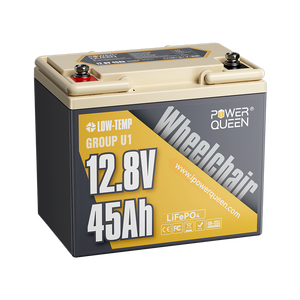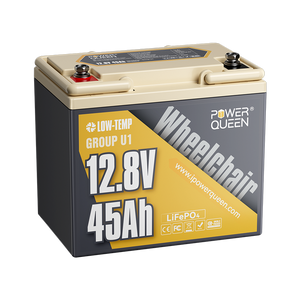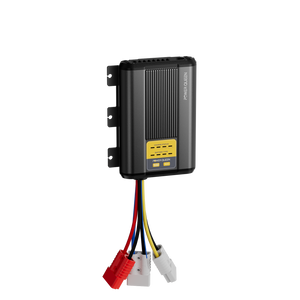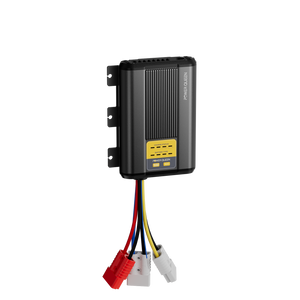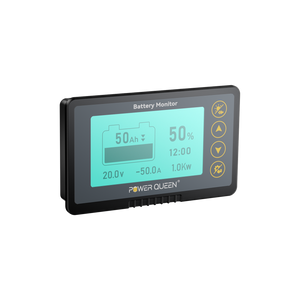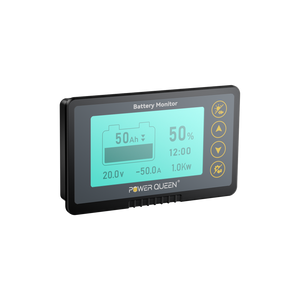How To Store Lithium Batteries Safely: A Complete Guide
Proper storage of lithium batteries is crucial to maintaining their longevity, safety, and performance. If you store batteries for a short time or a long time, improper storage can cause problems. It can reduce battery life, cause performance issues, or even create safety risks. This guide will help you learn the best ways to store lithium batteries. It will cover important topics like temperature, charge level, and safety tips.
Table of Content
- Part 1. What Are the Best Practices for Storing Lithium Batteries?
- Part 2. Tips for Storing Lithium Batteries
- 2.1 Store in a Fireproof Container
- 2.2 Avoid Storing with Other Batteries
- 2.3 Regularly Check Battery Charge Levels
- Part 3. How to Safely Store Lithium Batteries in Cold Weather?
- Part 4. Conclusion
- Part 5. FAQS
Part 1. What Are the Best Practices for Storing Lithium Batteries?
To safely store lithium batteries, follow specific guidelines that protect both the battery and its environment. The key factors to consider include temperature, charge level, and storage environment. By adhering to these practices, you’ll help preserve your battery’s health and avoid potential hazards.
1.1 Charge Level
Power Queen battery should be stored at 50% charge to ensure longevity and stability. Avoid storing them fully charged or fully discharged, as it can shorten their lifespan. These batteries offer excellent safety, long cycle life, and high energy density, making them ideal for solar, RV, and EV applications.

Related Reading: Storing LiFePO4 Batteries: A Guide to Proper Storage
1.2 Temperature
Temperature plays a critical role in maintaining lithium battery health. Avoid storing them in extremely hot or cold environments. The ideal storage temperature is between 10℃ and 35℃ (50°F and 95°F). Storing batteries in high temperatures can make them wear out faster. Freezing temperatures can also reduce their effectiveness or even damage them for good.
1.3 Environment
When storing lithium batteries, humidity can silently damage batteries. Keep them in a cool, dry place with low humidity. High moisture levels can cause rust or damage to the terminals and internal components of the battery. Additionally, avoid storing your batteries in direct sunlight or near heat sources, as prolonged exposure can degrade their performance.
Part 2. Tips for Storing Lithium Batteries
To further ensure the safety and longevity of your lithium batteries, consider these additional tips. These recommendations will help you create an ideal storage environment and prevent unnecessary wear.
2.1 Store in a Fireproof Container
For added security, especially when storing multiple batteries, use a fireproof container. Lithium batteries can occasionally overheat or even catch fire if damaged, and a fireproof container helps minimize risks. Never store your batteries next to flammable materials.
2.2 Avoid Storing with Other Batteries
If possible, store lithium batteries separately from other battery types, especially older or damaged batteries. Mixing different battery chemistries can lead to unsafe reactions. When you organize your batteries by type and age, you ensure that each one stays in optimal conditions for storage.
2.3 Regularly Check Battery Charge Levels
Even while in storage, it’s crucial to monitor the charge levels of your lithium batteries. Check them every few months to make sure they haven’t lost too much charge. If the charge drops below 30%, it’s time to recharge. Keeping the battery within a safe charge range is essential for long-term health.
Part 3. How to Safely Store Lithium Batteries in Cold Weather?
Cold temperatures can reduce a battery’s efficiency and cause it to lose charge more quickly. The Power Queen lithium batteries can be stored at or near freezing point, but it is important to avoid exposing them to freezing environments. If the battery has been exposed to low temperatures, allow it to warm up to room temperature before use.



Related Reading: How To Store Electric Golf Cart For Winter
Part 4. Conclusion
Properly storing lithium batteries is vital for ensuring their safety, longevity, and performance. By following these simple guidelines, you can help your batteries last longer. Keep the charge level right. Store them at the best temperatures. Make sure they are in a dry and safe place. This will help your batteries work well. Whether you’re storing batteries for your solar setup, electric vehicle, or gadgets, these tips will help ensure you get the most out of your lithium batteries.
Part 5. FAQS
5.1 How Should Lithium Batteries Be Stored to Prevent Damage?
Store lithium batteries at 50% charge in a cool, dry location. Ensure the temperature remains between 10℃ and 35℃ (50°F and 95°F) and avoid storing them in extreme cold or heat. Additionally, check the charge levels periodically and never store them in contact with flammable materials.
5.2 How Often Should I Check Lithium Batteries in Storage?
You should check lithium batteries in storage every 2-3 months. Ensure that the charge level has not dropped below 30%. If it has, recharge the battery to around 50% to maintain its health and prolong its life.
5.3 Can I Store Lithium Batteries in My Car?
It’s not recommended to store lithium batteries in your car, as the temperature inside a vehicle can fluctuate widely, especially in hot or cold weather. A better option is to store them in a stable, controlled indoor environment.




















